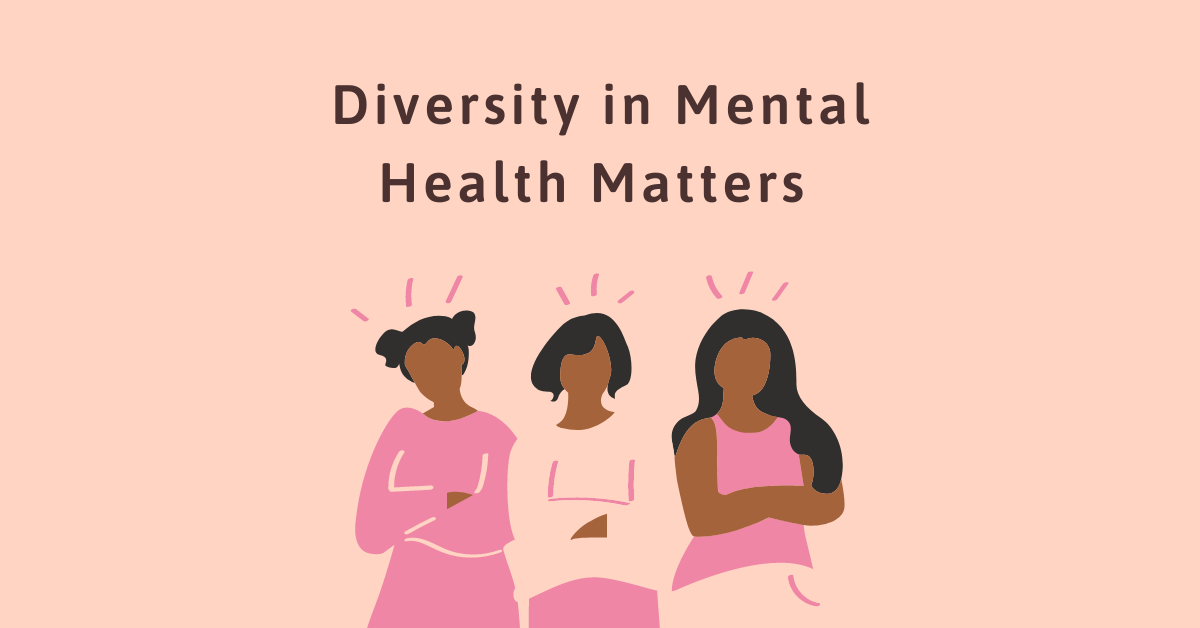Racial Trauma – Why Race Matters In Mental Health?

The Road Towards Race Equality
Last week was Race Equality Week for 2021 and the events of the past year, including the resurgence of the Black Lives Matter movement and the disproportionate effect of Covid-19 makes issues surrounding race inequality, still more relevant than ever.
Workplaces reconsidered their policies around diversity and inclusion, streaming sites removed outdated films with racist views and beauty brands acknowledged that greater representation was long overdue.
Progress made through BLM should be celebrated, with global awareness leading to major organisations and brands taking significant steps towards combating race inequality.
In order to accelerate real change and tackle the deep-set racism existing across our society, we need to continue to galvanise heightened consciousness in both the general public and workplaces.
Covid-19 has highlighted several racial disparities. In regard to financial resilience, anyone who loses their job and doesn’t have much money saved is far more likely to end up living in poverty and for many BAME communities who send money home to families in their countries of origin, this reducing financial resilience.
Racial inequalities have therefore been demonstrated in both social and economic perspectives across society.
47% of young BAME people are on zero-hour contracts compared to 17% for their white counterparts, resulting in an unreliable source of income and a disproportionate economic impact of the pandemic.
In the UK, one third of Covid-19 patients have been from BAME backgrounds, which is an especially high statistic given that BAME people only make up 13% of the UK’s population.
Furthermore, 16% of the NHS workforce are Black and Asian, highlighting that a significant proportion of BAME communities are on the frontlines fighting coronavirus.
Racial Trauma & Racial Based Traumatic Stress
Many of us are experiencing loss and grief at the moment. Most have experienced the loss of our regular routines; some have lost jobs and others have lost loved ones during the pandemic.
Grief occurs across a spectrum, and when referring to black or racial grief specifically, it can likewise be experienced as a collective trauma.
Racial trauma is caused by harmful threats, events of humiliation and witnessing racial discrimination towards yourself and others.
Often, people who experience racism are invalidated or told that they need to “get over it” and should “stop being so sensitive.”
Whilst we often only associate PTSD with veterans and large traumatic events, in reality, we are referring to an anxiety disorder that does not need to be triggered by one standalone event.
Instead, PTSD can be caused by the build-up of lots of smaller events or micro-aggressions, such as the build of racially motivated stressful incidents, or feelings of invalidation that result in people refraining from talking about their pain and thinking they just need to live with it instead..
The George Floyd killing and the protests which occurred in response to this, sparked a collective sense of grief and trauma across black communities globally.
These events tapping into people’s previous experiences of racially motivated discrimination all around the world highlighting the issues with race based trauma.
Nevertheless, psychological research tells us talking about pain can help soothe us and support us in not feeling alone.
There is help for individuals affected by racial trauma and race based traumatic stress, even though it is not recognised in the diagnostic manual, accessing a therapist who has the appropriate cultural competency
Or from a BAME community may really help you to feel understood, if this option is not available to you, talking to friends or family may also help to validate your feelings.
How Can We Accelerate Change Towards Race Equality?
Tackling issues surrounding race inequality needs a multifaceted approach.
From educating ourselves about racism and listening to people’s experiences of racial trauma, to forging meaningful relationships through allyship in the workplace.
The process of sharing struggles and stories allows individuals to support each other as a collective, but it also enables access to insights people might have not have previously thought of.
Allyship can help build empathy within the workplace and facilitate a greater level of understanding through connection amongst colleagues.
To accelerate change in workplaces, businesses should be continuing to ask themselves, how are they creating more inclusive narratives to increase belonging and value?
If you’re a leader of a team, ask yourself how are you listening to underrepresented people around your table?
An important step in helping employees feel encouraged to speak up is by creating safe spaces and inclusive meetings within the workplace.
These processes can help individuals understand that they all have a voice and the ability to make valuable contributions without feeling judged, and overall increasing a sense of belonging.
Celebrating Diversity
Diversity and inclusion within the workplace are significant in the route towards reaching race equality.
Greater representation can help build cultural awareness and encourage unity, creating a work environment where everyone can thrive.
It is undeniable that we need to have an anti-racist dialogue across our communities, workplaces and wider society.
Yet, we also need to remember that there are a lot of positive experiences happening within black and ethnic minority communities that should be celebrated.
Today’s hustle culture means there is a tendency to always be working towards what’s next, which often means forgetting to take time out to celebrate achieving goals you were previously only dreaming of.
The narrative around race therefore does not need to only be centred around trauma and grief; but diversity and black excellence should equally be celebrated to support a narrative of collective advancement.
If you would like support to take action on Race Based Traumatic Stress to live a trauma free life. Check out our mini-course here
